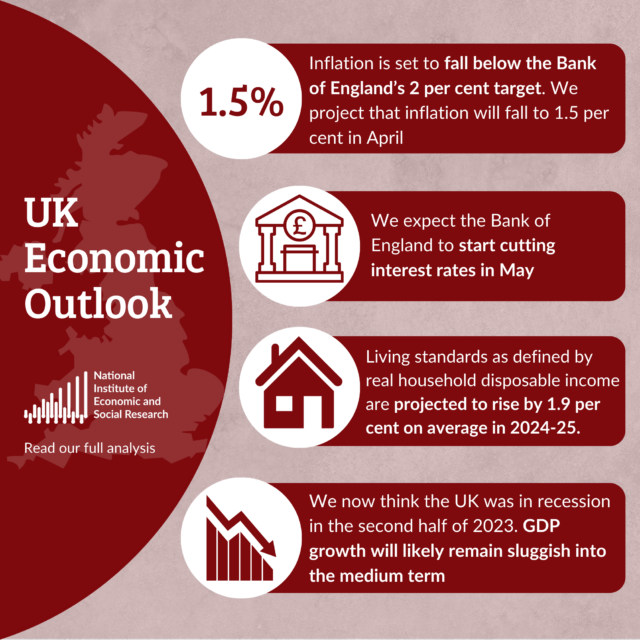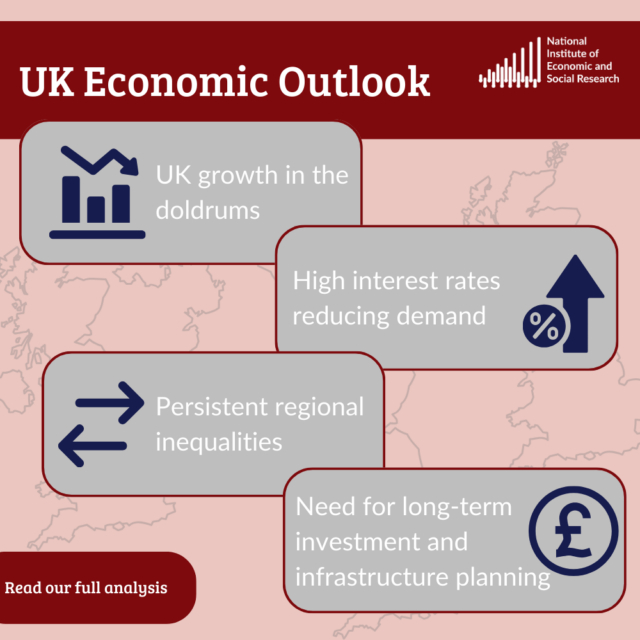Graduates boost productivity
New NIESR research published today by the Department for Business Innovation and Skills highlights the importance of graduate skills to the UK economy. Looking across developed economies, we found that - as both economic theory and common sense would predict - countries which increased their share of graduates in the workforce saw labour productivity grow faster. For the UK, we estimate that roughly one-third of the increase in labour productivity between 1994 and 2005 can be attributed to the accumulation of graduate skills in the labour force. In other words, a substantial share of the UK's economic growth over this period was driven by the expansion of higher education and the resulting increase in the proportion of workers who have a graduate-level qualification.
New NIESR research published today by the Department for Business Innovation and Skills highlights the importance of graduate skills to the UK economy. Looking across developed economies, we found that – as both economic theory and common sense would predict – countries which increased their share of graduates in the workforce saw labour productivity grow faster. For the UK, we estimate that roughly one-third of the increase in labour productivity between 1994 and 2005 can be attributed to the accumulation of graduate skills in the labour force. In other words, a substantial share of the UK’s economic growth over this period was driven by the expansion of higher education and the resulting increase in the proportion of workers who have a graduate-level qualification.
Complementing this estimate of the overall economic impact of graduate skills, BIS also published today new work by Ian Walker and Yu Zhu on the extent of the graduate premium – the increase in earnings enjoyed by individual graduates. This shows that, on average, female students who progress to university can expect to boost their lifetime earnings by £252,000, and men by £168,000.
Taken together these two pieces of work give an indication of the strong impact of university education on both private returns and the UK economy as a whole. In particular, the thrust of government policy over at least the last 30 years has been to expand participation in higher education: this evidence suggests that the economic benefits have been significant. Meanwhile, the evidence on the graduate premium highlights the potential benefits to individuals from their investment in higher education.
But this point comes with a health warning. The average graduate premium constitutes a substantial return relative to the personal investment in terms of the payment of fees and foregone earnings when studying. However, the average figures for men and women hide considerable variations by institution, course and by the characteristics of the students themselves. It is certainly not the case that all potential female students should expect a £250,000 boost to their lifetime earnings from completing a degree.
A key question for people receiving their A level results today is how much more can I expect to earn throughout my lifetime as a result of taking a particular course at a particular university. With this information, perhaps potential students can start to make informed decisions about whether or not to participate and what courses and institutions to apply to. Of course, these decisions are not just based on monetary returns to investment in education, with other well known social and personal benefits from a university education to take into consideration. However, whilst information flows in relation to the earnings benefits for undergraduate study are improving, more detailed information is needed to allow potential students to make good choices.
To a large extent, young people making university applications have very little information available to them about the benefits of different options available. The evidence that a university education produces a large financial return is likely to encourage greater participation, but there is a danger hidden beneath these headline figures that many potential students will accumulate large personal debts by taking courses with little economic return. The issue is a particular concern for those from low-income households who are much more averse to debt and have less exposure to HE through other family members experiences and as such are less likely to be fully aware of the economic and wider benefits of university education.






















